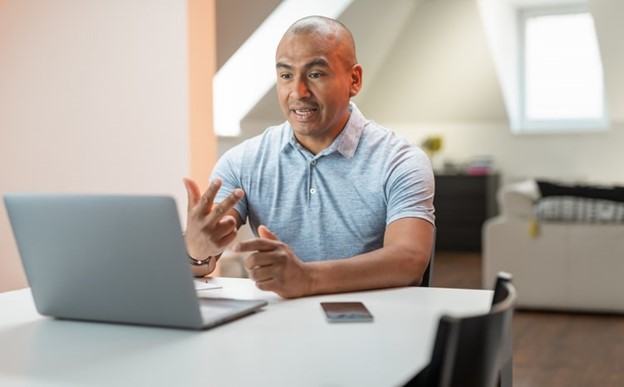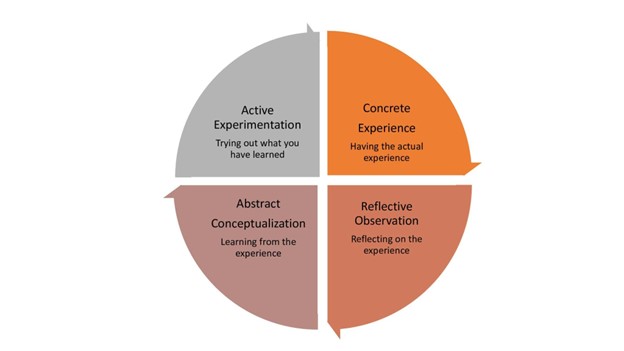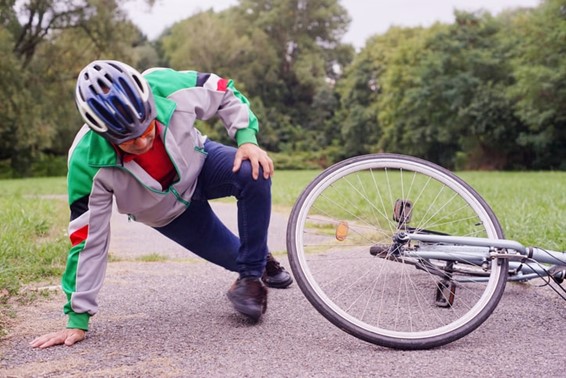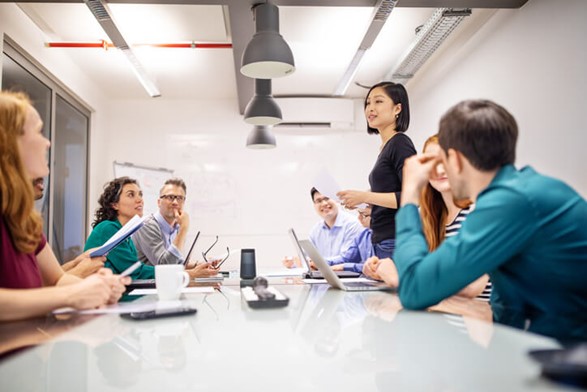You’ve done your research, asked the right questions, and talked with various coaches. And you’ve selected and contracted with your new coach. Now you are ready to work with your coach on your personal growth journey. This is the time for you to focus on working thoughtfully with your coach and creating positive change within yourself.

Coaching is an investment in self-improvement. It can feel like you’ve decided to learn a new language. Learning a new skill, mindset, or behavior requires continuing commitment and a willingness to face new challenges. In order to get the most out of your coaching journey, you’ll want to stay motivated and committed to getting the most from this experience, just as you would with any personal development.
I have over 25 years of experience coaching hundreds of clients. In this article, I’ll share my tips for getting the most out of your coaching experience.
If you need ideas on how to find a coach, see my article titled How to Find a Personal Coach.
Preparing For Each Coaching Discussion
Our First Meeting
In our first meeting, you may be unsure about what to expect, so I’ll generally propose a more structured discussion agenda. This is the stage at which we are getting to know each other and setting some direction for our work together. Typically, in the first coaching session, we’ll discuss:
- Learning more about you as the client, including your personal and/or professional history.
- Answering any questions you may have about me, my history, or my coaching style.
- Confirming initial ideas regarding the positive changes you envision and what you initially see as ideal outcomes for our work.
Individual reflection and practice are important between our sessions. At the end of our first meeting, we’ll agree on some easy reading, reflection, or practice for you to continue your learning before we meet again. For example, when working with someone who wants to clarify career direction, I may ask this person to reflect on the most draining or energizing points in their career so far, as well as outline their aspirations regarding a new role, culture, or organization.
Ongoing Meetings
Once we’ve had our first meeting and set the initial direction, the discussions become yours to own. I’ll ensure we’ve clarified the goals for our work together and keep moving forward. However, this is your personal journey and you will ultimately decide how we spend our time.
When starting a session other than the first one, I start with the following question: “What is it that we’d like to accomplish today”? I do this for two reasons: first, it allows us to start with whatever topic is most important to you. It’s also a way of ensuring that we are accountable to each other and to our sessions, coming prepared and ready to meet.

Clarify What You Hope to Achieve in Each Session
Before each coaching session, spend a little time reflecting on what you want to discuss and what you hope to achieve by the end of the session. Think about your goals, your practice and progress since our last discussion, and any challenges you may be facing.
Reflecting on progress since the last session is especially important. What have been your experiences with practicing new behaviors and forming new habits? What are you learning about yourself? What desired outcomes were you able to carry forward?
Remember, this is your time to explore, discover and grow. Keep an open mind and be ready to share your thoughts and experiences fully in our dialogue. Coaching is a collaboration between you and I, and your openness to the process is key to making progress.
Our Partnership - You and I
Coaching is truly a partnership in which you and I are focused on your goals. The magic of coaching happens because we are working together with focus, candor, and commitment!
Communicating With Each Other In Session
Establishing a Safe Space, Being Open and Honest: We cannot be successful without trust and transparency between us. Tell me what you like and don’t like. Speak up if we hit a topic that is overly sensitive. Let me know if we are not working on the right things or working in the right way. We’ll commit to maintaining a two-way communication channel that is confidential unless otherwise agreed. We must be honest with each other regarding how we are experiencing each coaching discussion.
Actively Listening: Active listening is a foundational skill in connecting with others. It’s a skill that I am practicing at all times when coaching. We both commit to being fully engaged and present during discussions. Listening, with curiosity, to what is being said and how it’s said. Observing body language and non-verbal communication.
Asking Questions: During a session, I will be primarily listening or asking questions to inspire our learning, and I invite you to do the same! My questions will be open-ended, usually starting with the words “what” or “how”, and intended to coax out insights regarding our topic.
Being Culturally Aware: We want to be continuously mindful of cultural differences that may affect each of our assumptions and beliefs about the world and then give each other permission to raise questions regarding the effect of these differences on our work.
Maximizing Our Time Together
Staying Focused: Establishing boundaries that focus our discussion on our coaching work unless we’ve agreed to adjust our goals. Eliminating distractions and staying on track during discussions. While this can be difficult in our world of instant messaging, it is necessary if we are to do the deep work required to achieve change.
Maintaining Commitment to the Process: Attending our scheduled sessions. If needing to cancel, providing 24 hours’ notice. Being punctual for each session. Resolving any technical issues before the session starts, if possible.
Action Steps: At the end of each discussion, we’ll agree on tasks or exercises to complete before the next session. I’ll send a summary of the action steps to you following each session so that we remain completely aligned and you know what to do. You’ll let me know if any changes are needed.
The Center for Creative Leadership has conducted research on coach and coachee characteristics that lead to a successful coaching relationship. Check out their research here.
Working Between Coaching Sessions
Why Practice and Experimentation Are Essential to Success
We’ve established the goals for our work together and have engaged in insightful discussions. However, we haven’t yet done all of the work to realize your goals. Talking is not enough. A big part of successfully creating change is not just describing aspirational changes to behavior and mindset but practicing, experimenting, and adjusting your behaviors and practices with those around you.
How Adults Learn
David Kolb, an educational theorist, published his Experiential Learning Cycle in 1984 (see below).
“Learning is the process whereby knowledge is created through the transformation of experience.” (Kolb, 1984).
Effective learning is seen when a person progresses through four stages: (1) having a concrete experience followed by (2) observation of and reflection on that experience which leads to (3) development of abstract concepts and conclusions, which are then (4) used to test a hypothesis in future situations, resulting in new experiences.

If you’d like to learn more, click here.
The Center for Creative Leadership (CCL) has defined a coaching framework known as the RACSR Model – Relationship, Assessment, Challenge, Support, and Results.
- Relationship: the relationship between the coach and coachee is based on rapport, commitment, and trust.
- Assessment: developing a deep and holistic understanding of the coachee’s history, experiences, and goals.
- Challenge: creating scenarios that cause individuals to move outside their comfort zone and take risks.
- Support: providing feedback, acknowledging progress, and sharing observations as the individual tries new approaches.
- Results: Accomplishing goals and achieving desired changes.
And from Korn Ferry: The most impactful learning always comes from experiences and from others—as we know from the 70-20-10 rule of thumb: 70 percent of what people learn is from experiences on the job; 20 percent is learned from relationships with others. The remaining 10 percent comes from formal training.
All of the above models have common elements, including the belief that learning new skills or new habits requires trying new things, gaining new experiences and greater self-awareness, adjusting as needed, and relying upon a coach or inner circle who can provide feedback, observations, and support. Just like learning to ride a bike, practice between sessions is important to personal development!
Challenges You Should Expect
Learning new ways of being may feel odd or uncomfortable at first. Consider how you last felt when learning something new. As you practice between sessions, you may encounter ups and downs, such as:
- Dealing with plateaus: Understanding that progress is not always linear.
- Feeling stuck: Being unable to move forward and you don’t know why.
- Overcoming resistance: Recognizing and addressing any internal barriers you have to change.
- Uncomfortable emotions: Not being as immediately capable or skilled as you might like while you are practicing.
You’ll want to note any challenges you face so we can discuss them during our next session. Dialogue during our session will help put your experiences into context and allow us to reframe the discussion to stay focused on your goals and successes.

Achieving Success
Throughout your personal growth journey, you’ll want to get feedback from others. We may use a formal assessment or interviews, or you may want to use this as an opportunity to deepen relationships by asking colleagues what they need more of or less of from you. We’ll plan this into our work at intervals to assess your progress and identify ways to be your best self consistent with your goals.
We especially want to recognize your hard work and acknowledge positive changes along the way. Towards the end of our work together, I’ll ask you to reflect on what you’ve accomplished and what you are most proud of. As a last step, we’ll discuss practical ways in which you can maintain ongoing momentum once our coaching has concluded.

In Closing
Coaching is a valuable investment of your time and resources that can profoundly impact your future success. Reflecting on my numerous successful coaching engagements, I’ve found that true progress happens when individuals are genuinely committed to their self-improvement journey. They possess a commitment to learning, as well as a willingness to continually broaden their perspective, embrace discomfort, and engage in consistent practice.
Change is an integral part of our daily lives. Together, let’s embark on a transformative journey and reshape your world.


